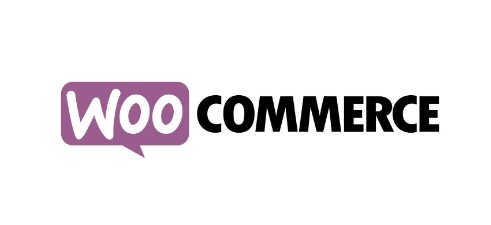
Embarking on the journey of establishing an online store is an exhilarating venture, yet the selection of the ideal e-commerce platform to drive your business forward holds paramount importance. In a landscape teeming with a multitude of choices, navigating this expansive realm can pose a formidable challenge. This article aims to lead you through the discerning process of handpicking the flawless e-commerce platform for your online store.
Table of contents
The Importance of Choosing the Right eCommerce Platform
Selecting the ideal e-commerce platform is crucial for a thriving online store. It serves as the cornerstone, impacting functionality, scalability, and user satisfaction. Opting for the right platform can streamline operations, draw in customers, and boost sales.
When making this choice, prioritize your business needs, scalability, and budget. Opt for a platform that aligns with your specific demands and can expand alongside your business. While cost considerations are important, remember that investing in a dependable platform ultimately yields a smooth and secure shopping experience.
Types of eCommerce platforms
Types of eCommerce platforms can be categorized into three main classifications: hosted, self-hosted, and open-source.
1. Hosted platforms offer the most straightforward setup and management process. They operate on cloud-based systems, providing all the essential tools and infrastructure for handling your online store. This type eliminates concerns about server upkeep, security updates, and software upgrades.
Well-known examples of hosted platforms encompass Shopify, BigCommerce, and Wix.
2. Self-hosted platforms, conversely, necessitate that you oversee the hosting and technical elements of your online store. This involves installing and configuring the platform either on your personal server or through a third-party hosting service.
Self-hosted options grant greater flexibility and control over your digital storefront, yet they mandate a degree of technical proficiency for setup and maintenance. Notable self-hosted platforms encompass WooCommerce, Magento, and PrestaShop.
3. Open-source platforms are freely available for utilization and can be tailored to align with your precise requirements. They are constructed and maintained by a community of developers and provide a considerable degree of adaptability and personalization.
However, open-source platforms demand a greater level of technical know-how for setup and administration. Illustrations of open-source platforms comprise OpenCart, osCommerce, and Zen Cart.
Popular e-commerce platforms and their features
E-commerce systems are available in numerous styles and sizes, each with its personal specific features and capabilities. Here are a few famous e-commerce platforms and an overview of their key features
1. Shopify:

Shopify is a famous e-commerce platform that lets corporations create and manipulate online shops. It affords more than a few gear and offerings to assist entrepreneurs and companies in setting up and running their online retail operations.
Features:
- Ease of Use: Known for its user-friendly interface and easy setup.
- Customization: Offers a range of templates and allows for customization through its theme editor.
- Payment Integration: Supports multiple payment gateways and has its own payment system (Shopify Payments).
- App Store: Offers a vast app store for adding functionality and features to your store.
- SEO and Marketing Tools: Provides tools for search engine optimization and marketing campaigns.
2. WooCommerce:

WooCommerce is a complimentary WordPress plugin that transforms any WordPress website into a completely operational e-commerce shop. It stands as a desired option for groups that might be already utilizing WordPress as their content management gadget.
Features:
- WordPress Integration: Seamlessly integrates with WordPress, giving you the flexibility to create content-rich websites alongside your e-commerce store.
- Extensions and Plugins: Large library of plugins and extensions to add features like payment gateways, SEO optimization, and more.
- Product Types: Supports various product types including physical, digital, affiliate, and more.
- Inventory Management: Easily manage your product inventory and track stock levels.
3. Magento:

Magento is a robust and expandable e-commerce platform frequently employed by larger enterprises and businesses with intricate demands. It provides a wide array of customization possibilities and features.
Features:
- Scalability: Designed for large-scale businesses with complex e-commerce requirements and high traffic.
- Multi-Store Management: You can manage multiple stores from a single admin interface.
- Flexible Content Management: Offers robust content management capabilities in addition to e-commerce features.
- Advanced SEO Capabilities: Provides tools for optimizing your store’s visibility on search engines.
4. BigCommerce:

BigCommerce is an e-commerce platform hosted in the cloud, offering a robust array of tools to craft and oversee online stores. It’s acclaimed for its adaptability and capacity for growth.
Features:
- Responsive Templates: Offers mobile-friendly and responsive templates.
- Built-in Features: Includes features like abandoned cart recovery and SEO tools.
- Scalability: Suitable for businesses of all sizes.
- Multi-Channel Selling: Allows selling on various online marketplaces.
- Payment Gateways: Supports multiple payment gateways.
5. Wix:

Wix offers an intuitive website-building platform with integrated e-commerce functionality, making it an ideal option for small to medium-sized enterprises looking to create a powerful online sales presence.
Features:
- Drag-and-Drop Builder: Allows for easy customization of websites without coding.
- Templates: Offers a wide range of templates for various industries.
- App Market: Provides a marketplace of apps to enhance functionality.
6. Squarespace:

Squarespace is a website builder that comes equipped with e-commerce capabilities. It’s renowned for its aesthetically pleasing templates and is perfect for businesses aiming for a visually striking online presence.
Features:
- Elegant Templates: Known for its visually appealing templates that are ideal for businesses looking for a clean and modern design.
- Drag-and-Drop Builder: Allows for easy customization and design adjustments without the need for coding.
- Blogging Capabilities: Offers robust blogging tools in addition to e-commerce features.
7. OpenCart:

OpenCart is an open-source e-trade platform that allows you to install and manipulate online stores. It’s regarded for its simplicity and flexibility, making it a popular desire for small to medium-sized corporations.
Features:
- User-Friendly Interface: Intuitive admin panel for easy store management.
- Multi-Store Functionality: Allows managing multiple stores from a single admin interface.
- Extension Marketplace: Offers a wide range of extensions and themes for customization.
- Multi-Language and Multi-Currency Support: Enables international sales.
- SEO-Friendly: Provides tools for optimizing product listings and URLs for search engines.
- Payment and Shipping Options: Supports various payment gateways and shipping methods.
8. PrestaShop:

PrestaShop is an open-source e-commerce platform that provides extensive customization options and benefits from a dedicated community of developers and users, all contributing to its continuous improvement and expansion.
Features:
- Open-Source: Like OpenCart, PrestaShop is an open-source platform.
- Multi-Language and Multi-Currency Support: Allows you to sell internationally.
- Modular: Offers a modular architecture for adding features.
Choosing the right e-commerce platform for your business
Opting for the perfect e-commerce platform for your enterprise is a pivotal decision that holds substantial sway over the triumph of your online emporium. Numerous factors warrant consideration in this choice:
1. Business Objectives and Requirements: Commence by unequivocally defining your business objectives. Contemplate your target audience, the range of products or services you intend to sell, your envisioned growth trajectory, and any specific attributes or integrations that you necessitate.
2. Budget: E-commerce platforms encompass a wide spectrum of pricing structures. Some levy a monthly subscription fee, while others garner a percentage of your sales revenue. It is paramount to gauge your financial limits and how they align with the pricing model of the chosen platform.
3. Scalability: Ensure that the platform you opt for possesses the ability to expand in tandem with your business. As your online store evolves, it is undesirable to surpass the platform’s capabilities, necessitating a laborious migration to a new solution.
4. User-Friendliness: Evaluate the platform’s user interface for its accessibility. Your team and you should be proficient in managing the store without the need for extensive technical expertise. Prioritize a platform that provides an intuitive user experience.
5. Payment Options: Verify that the platform accommodates the charge gateways you must rent, along with famous charge strategies credit score playing cards, digital wallets, and PayPal.
6. Security: Security is of paramount significance in e-commerce. Ascertain that the platform boasts robust security features, including SSL certificates and compliance with data protection regulations.
7. Mobile Responsiveness: Recognizing the prevalence of mobile shoppers, your chosen e-commerce platform should offer a responsive design that functions seamlessly on smartphones and tablets.
8. SEO-Friendly Features: Seek out features that facilitate search engine optimization (SEO). This encompasses customizable URLs, meta tags, and sitemaps.
Recommended Articles
- Corporate Website Design Secrets Big Brands Never Share
- The New Rules of Social Media Growth in 2026
- How to Win at Digital Marketing in 2026
Conclusion
In conclusion, selecting the right e-commerce platform is pivotal in guaranteeing the success of your online store. Taking into account elements like user-friendliness, scalability, design flexibility, secure payment processing, mobile adaptability, and SEO optimization allows you to make a well-informed choice that complements your business objectives. With widely recognized options like Shopify, WooCommerce, and BigCommerce readily available, establishing a flourishing online store has never been more accessible.
Now, take the next step with Hunter’s Digital and elevate your e-commerce venture to new heights! Contact us today to get started.

